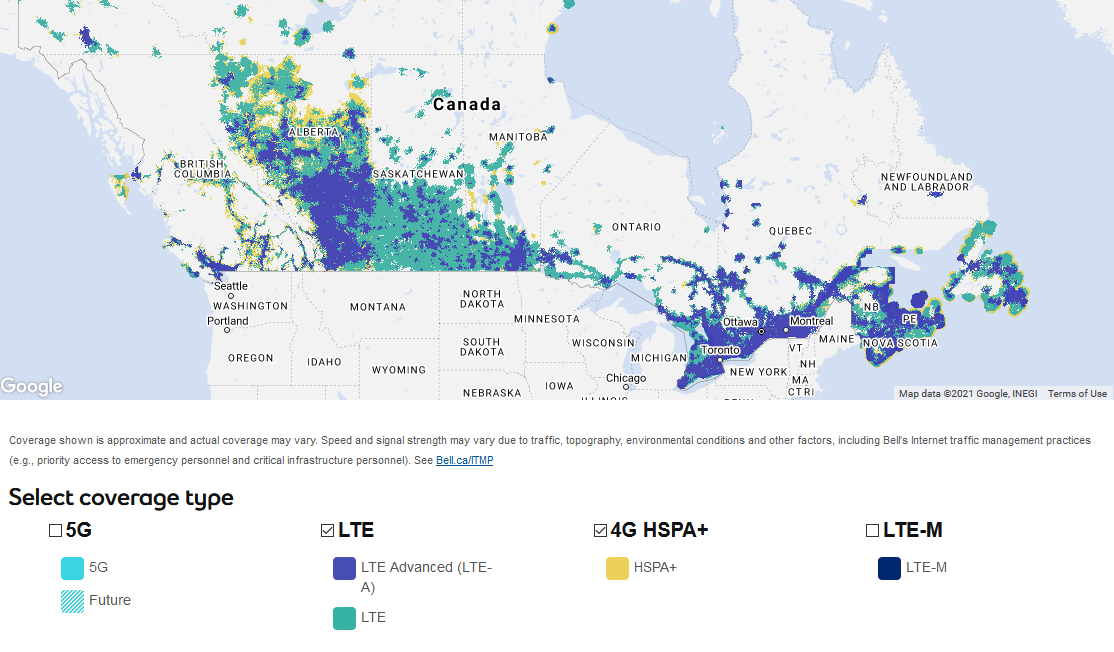If you live in a major city, like Ottawa, chances are that you never have to deal with slow internet speeds. Every member of your household can go about working, studying, watching TV and gaming across the internet with no issues. It's especially important with a pandemic keeping everyone stuck at home, as the internet keeps you connected to family, friends, and yes, work and school.
The internet is often considered the great equalizer. It is supposed to give everyone, no matter where they are across the globe, access to the same resources.
In practice, it doesn't exactly work like that. Many Canadians have limited means to access the internet. And the internet itself is already passing by their meagre connections.
Canada's rural population of almost 7 million, including about 60% of Canada's Indigenous peoples, are stuck with terrible internet. Low bandwidth, limited speeds, high prices.
If we are to build an equitable society, that gives everyone the same opportunities, this will need to be addressed.
Many internet services don't play well anymore with poor connections. Think of a streaming service, like Amazon Prime, where you can only download TV and movies on mobile - now you need a whole new cord to connect your phone display to your TV to watch. Even YouTube works on direct streaming, rather than allowing a user to load videos before watching, or download them. Newer video games require users to download hundreds of gigabytes - do the math, how long does 100 GB take to download at 10 megabits per second (Mb/s)?
I'll give you a real-world example, from my experience on a rural connection. One day, my work flashed a Microsoft Office update to all computers. I left mine on overnight to allow the software to download and install. Next day, all my Office products were deleted, and the install had failed. When I talked with the IT department, I was told the download would not work unless I was on a better internet connection.
Everything listed above ranges from a medium inconvenience (constant buffering of your entertainment) to a major hindrance (how can someone work if the products they need cannot be accessed).
There is hope, finally, as companies like Telesat and SpaceX (StarLink) put together fleets of Low-Earth-Orbit (LEO) satellites to provide reliable, high-bandwidth internet service to rural dwellers in Canada and across the world.
This is a big undertaking though. We're talking launching thousands of satellites to space.
Meanwhile, I think a solution to our internet problems already exists on the ground, but the Canadian Government and telecom providers have ignored it completely.
I'll give you two real-life examples to illustrate.
In the summers of 2012 and 2013, I worked as a treeplanter in Northern British Columbia. We stayed in camps located along forlorn highways and dusty logging roads. Our work took us into fetid swamps and into the clouds on picturesque mountains. My first summer, any cell service or internet connection was a blessing. We would visit towns like Prince George and Chetwynd on our days off, go to the local library to connect to the internet, and make any phone calls we needed to from there.
The summer of 2013 though, things were different. This was right around the time cell-service upgraded from 3G to LTE. The first camp we stayed at, I never lost cell signal. I remember being able to Snapchat friends from the top of mountains, no sign of human habitation anywhere.
My second example is a little closer to home. I'm currently working on an internet connection with a download speed that ranges from 0.1 to 0.9 Mb/s (on a good day). If I switch over to my phone data plan, that speed goes up to over 100 Mb/s. On a bad day, we're talking 1000x faster. Of course, in Canada we're limited by how much data we can access. I'm lucky enough to have a plan with 20 GB of data (plus it's unlimited, just speed-throttled after 20 gigs), but as mentiond above, downloads aren't getting any smaller.
If you haven't caught on, I'm talking about turning cellular data into the main source of internet access in rural Canada. Currently, many rural areas, especially in the populous south of the country, are served by cell towers, but houses connect to the internet on repurposed phone lines.
I can also use my mobile as a hotspot, connecting other devices in my house to the internet though it. Obviously, it's already possible to convert cellular networks to regular old WiFi.
At the moment, Canada has basically the world's worst data plans in terms of costs. This is fine, maybe it's just the cost of doing business across our massive country for the telecoms (or their oligopoly status let's them jack up prices to ridiculous amounts, idk).
Anyways, I think the government's of Canada missed a huge opportunity to help rural residents get access to the internet, and these satellite companies are now plugging a gap that didn't need to exist.

Whether in the form of tax breaks or subsidisation, telecoms could have provided mobile service to any areas covered by their network, but not covered by fiber-op cable (that's the good stuff for internet connections).
I'm just going to throw this idea out there, if StarLink, already providing service, fails - there's another option to provide the same internet service for Canadians who have, until now, been left behind.
Let's talk about giving everyone equal access to the internet.